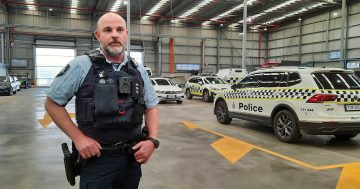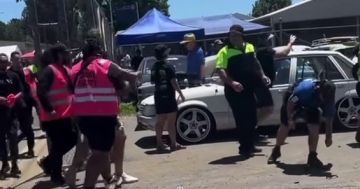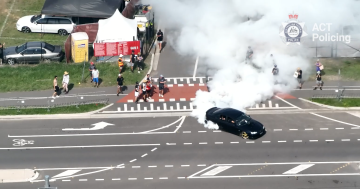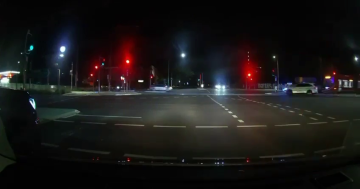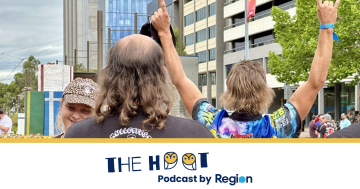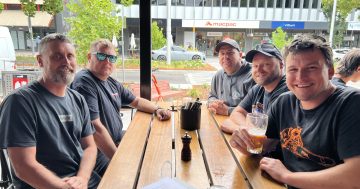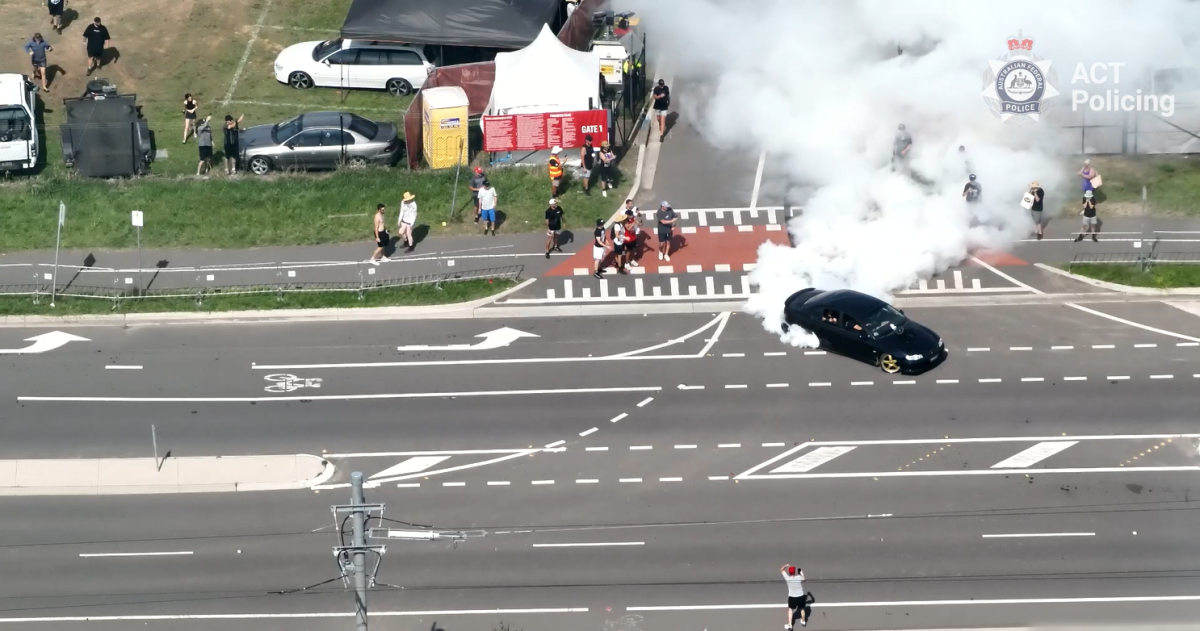
An ACT Police officer took aim at problematic Summernats attendees, calling them “morons” and claiming they haven’t “evolved very far”. Photo: Screenshot.
There’s a certain amount of automatic respect that I offer police officers. It’s the same for firefighters and paramedics – anyone who works to provide the public with vital services. I appreciate the job they do and that it’s not always an easy one. But is it too much to expect the same respect to be provided back to civilians?
Last week, an ACT Police officer took aim at problematic Summernats attendees, calling them “morons” and claiming they haven’t “evolved very far”. He took care to differentiate the group he was aiming at from the rest of the car enthusiasts, but I doubt the Summernats naysayers would have caught the nuance. The language played right into the anti-Summernats rhetoric that washes over Canberra every year and that has a strong whiff of snobbery underlying it.
The idea that Summernats attendees, who could be said to reflect a particular section of society that is different from the majority intellectual upper-middle class of Canberra, are all low-brow in their pursuits and inherently less smart than the rest of us is one I’ve been hearing my whole life in this city.
Obviously, there is a genuine issue with dangerous driving and road-related crime by some Summernats attendees. However, I was still disappointed to hear the elitist nonsense that the ACT Police allowed to be said in a public forum. And not just because it further embeds the us-and-them attitude of Canberra versus Summernats. I also feel that it is inherently problematic for police officers to behave in any disrespectful way towards the people they serve.
For justice to be served fairly, it’s vital that our police are unbiased, don’t harbour discriminatory or prejudiced views, and carry out their duties impartially. To spout abuse about any group of people when fronting up to the media about crime management is a slippery slope. It might seem innocuous when it’s car-loving youths they’re talking about, but it wasn’t that long ago in our history that police would openly make racist remarks about Indigenous Australians or play into Islamaphobic rhetoric. Those attitudes contribute to the way those cohorts are treated both in society at large and by the justice system.
And if they are willing to make judgemental remarks about groups of people in public, what are they saying behind closed doors? What kind of culture does that create?
Police officers, like all Australians, are entitled to their opinions. I do not doubt that their jobs are stressful and that people choosing deliberately to drive unsafely and endanger the community is incredibly frustrating. But their role as public servants means they have a higher obligation than others to be professional and balanced during work hours, and last week’s remarks missed that mark entirely.












